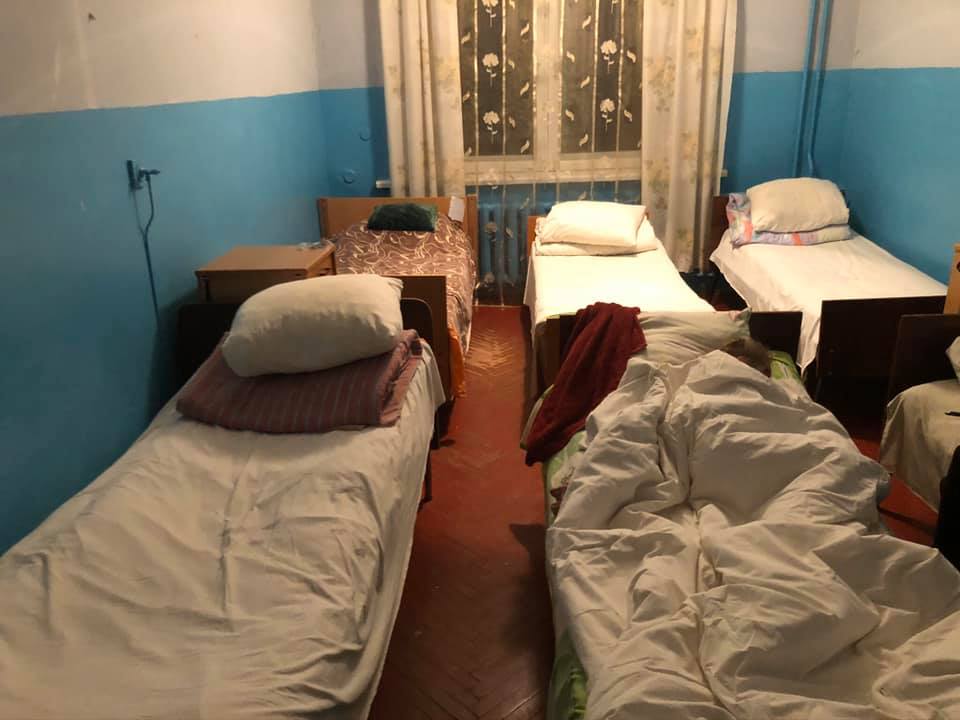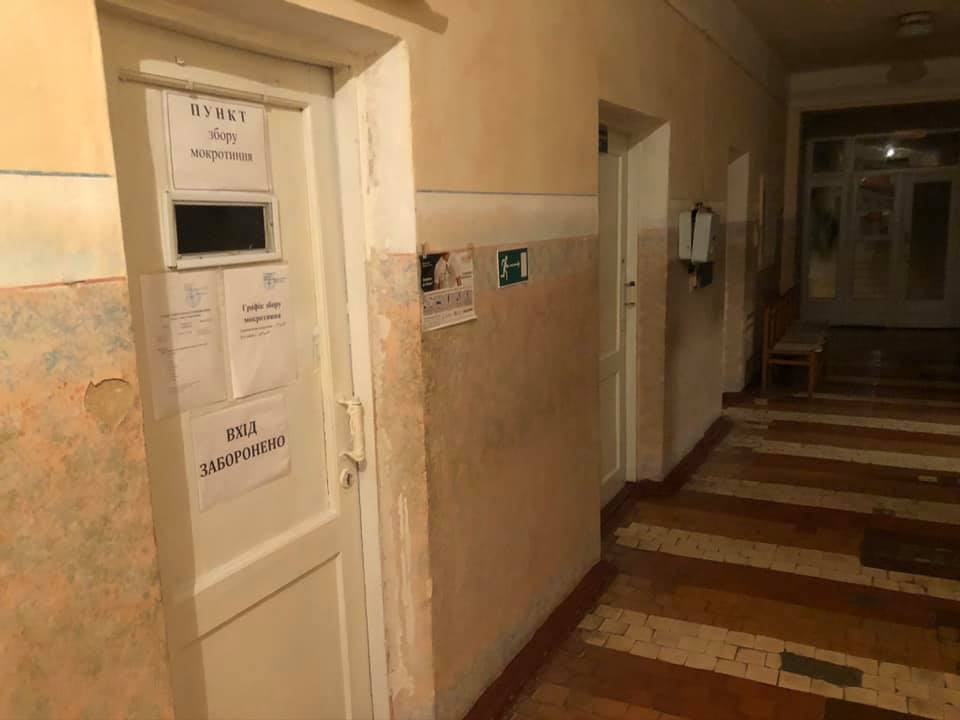In his 4 May video address, President of Ukraine Volodymyr Zelenskyy stated he can not allow the implementation of healthcare reform in the system's current state. At his 20 May press conference, marking his first year of presidency, he stated:
“COVID-19 demonstrated that the reform failed. There are normal things that have been done. But a lot of things were not taken into account, and we appeared medically stripped before this challenge.”
This statement is problematic. The issue is not that the country is unprepared because “the reform failed” -- after all, implementation is not yet completed -- but because the last half-year saw all preparatory work stagnate in the Ministry of Health.

Former Health Minister Ulana Suprun (2016-2019) had started preparing for the main stage of the reform but was dismissed from office in August 2019. The following November, the Head of the National Health Service of Ukraine Oleh Petrenko resigned “due to different fundamental values'' as well as constant conflicts with the new Health Minister Zoriana Skaletska. In the wake of Petrenko’s resignation, this main body of health reform remains without a replacement. In March, first-appointed Health Minister, Zoriana Skaletska, was replaced by second-appointed Health Minister, Illia Yemets, who was then dismissed a month later, and replaced by Maksym Stepanov, the current minister.
Having failed to implement reforms in the healthcare system, the shaky government was now completely overwhelmed by the coronavirus pandemic. The narrative had to change, and a media campaign quickly took off.
Zelenskyy’s “working group” immediately pointed a finger at the previous government -- now nine months out of office -- as guilty for all shortcomings in healthcare, claiming that reforms should not have been implemented at all.
This accusation utilized the tried-and-true populist approach -- public discontent -- and was broadcast by all major TV channels, including 1+1, the most popular. The messaging consisted of direct lies and distortion of facts.
On top of all of this, the Ministry of Health was accused of corruption for non-transparency in state procurements conducted in April.
And thus the downward spiral began.
One of the most important reforms now under question

Due to the Soviet legacy of poor medical services and terrible conditions at most of the country’s clinics, healthcare reform was one of the most important. Suprun managed to launch successfully the first stage of reform, allowing citizens to choose their own family doctors (general practitioners). Although doctors’ salaries increased on average, they were set according to the number of patients they had, creating competition among doctors.
The second stage of reform, started on 1 April, is the most important, but has been launched without proper preparation.

Under the old Soviet system, clinics received funding proportionate to the number of so-called “hospital beds” available. Regardless of whether the clinic treated 400 or 4,000 patients per year, they would receive the same funding as long as they had a nominal bed count. Now, clinics will have to compete for clients to obtain their proper funding from the state.
To maintain this new system of fund allocation, a special National Health Service of Ukraine was created in 2018. This body defines the average cost of each medical service and then directs funding to clinics depending on the range and number of services they provide.
According to the 2020 calculations of the National Health Service, 954 clinics will receive more funds than in the previous year. Some of the most effective will receive 200-300% more funding compared to the previous year. Meanwhile, 613 clinics will receive fewer funds from the state in comparison to the previous year. However, under the new reforms municipalities will assume the added responsibility of maintaining their grounds and buildings.
Therefore, only 332 clinics (20%) in total may suffer considerable budget cuts that could undermine their feasibility and may lead to bankruptcy. The risk of their bankruptcy and collapse has proved to be the focus of reform criticism.
Views of Zelenskyy’s team: Ukrainian clinics are unprepared for the reform; not enough money is provided to them; people can not be fired; salaries should be raised

“Minister of Health Maksym Stepanov is ready to implement the mandate of the President of Ukraine Volodymyr Zelenskyy and conduct significant changes in the medical reform of Ukraine.”
- Official statement of Health Ministry, 5 May 2020
This statement is puzzling. Ukraine is a Parliamentary/Presidential Republic, whereby the Cabinet, including the Minister of Health, are appointed by Parliament and subject to the rule of Parliament. The president has nothing to do with medical reform -- the minister is accountable only to Parliament. However, reality has shown that Zelenskyy is not very eager to read the Ukrainian Constitution nor, apparently, are Cabinet ministers.
Yet, leaving this aside, what is the vision of the presidential team regarding the amendments to medical reform?
“The medical reform in the manner in which we received it means the dismissal of about 50,000 medical workers and the closure of 332 hospitals. All this is due to the lack of funding ... It is necessary to increase the salaries of doctors and paramedics of the second and third levels -- this is more than 400,000 doctors.”
- Minister of Health Maksym Stepanov
The number of hospitals at risk of bankruptcy is indeed 332 (20%) as data from the National Health Service of Ukraine and analysts from Vox Check think tank confirm. At the same time, these are the country’s weakest clinics and can only provide limited services. Many receive funding, in effect, for nothing. These clinics need to be reorganized, instead of maintained at the current state. In reality, the government may just fear unpopular policies before local elections that are planned for October 2020.
Also, some clinics
complain about budget allocations that are far too low for certain services. However, this is not to criticize the concept of the reform itself. The point is that budget allocations should be increased in general. Since the proper preparations were not made shortages have occurred.
After Suprun was dismissed from office, her successors were obviously not keen on preparing for the implementation of the reform. In effect, this is the reason why in November 2019 Petrenko resigned from his position as Head of the National Health Service -- the main institution responsible for distributing finances among clinics. He explained his decision as follows:
“The reason [for the resignation] is that we have very different fundamental values with the team that is currently working on the healthcare system transformation. That prevents us from working. Lack of common understanding of purpose, complex processes, shared responsibility, and constant search for simple solutions to complex issues do not help to find common ground.”
In March, two Health Ministers were replaced successively. Yet by 1 April, a new model of fund distribution was in place. In the void of leadership, financing for some programs was literally missed. For example, the government failed to include funding for interns, simply because neither of the short-lived ministers had enough time to study the pertinent details. This is why the head of the relevant department has also resigned.
“The critique expressed by the current officials about the reform is, in fact, a critique of themselves. They should have the courage to recognize this,” says Oleksandr Yabchanka.
Yabchanka is an expert in medical reform for the Reanimation Package of Reforms NGO and former advisor to the Ministry of Health, whom we asked to explain how “real” the problems are that Zelenskyy’s team plans now to “reconsider.”

Since 2018 municipalities are responsible for the preparation of their local clinics. While most of them did, some just ignored the impending reform and now bear consequences.
Yabchanka emphasized that many of the local clinics are not capable of providing a full range of services and consequently have few clients. He stressed that they have to be reorganized — not maintained in their present state. To achieve this objective, local municipalities should have worked jointly during the last year. Their shared task would have been to identify the main clinic in the region and restructure the roles of other smaller clinics. For example, to transform them into diagnostic centers or hospices.
A clinic that wanted to be the main facility in any given region needed to start preparing for reform in 2017. This stipulation was made clear repeatedly, and warnings were issued many times.
The majority of clinics and municipalities did start preparing in 2017. They undertook renovations -- including updating or purchasing new equipment -- with a view to attracting clients in 2020 when the new funding model was to be implemented.
“What was the homework for local governments, which are mostly owners of hospitals?” asks Yabchanka. “Local governments had to do what is called financial planning ... In order for the national health service to buy services from their clinics, they had to meet requirements for each service and attract clients … Why did it happen that some did the homework, and some did not? The question is rhetorical.”
Yabchanka emphasized that the government may provide additional funding for those clinics that failed to make adequate preparations if these funds are used for reorganization and the government manages to find these additional funds in a shrinking budget.
The latest vague statements of Minister Stepanov leave uncertainty as to which of these scenarios the government prefers.
No clear answers or plans from the Minister
On 12 May, Stepanov visited the related parliamentary committee, where MPs questioned him regarding reforms. As Liga.net reports, his comments did not result in any further clarity on plans:
Olha Stefanyshyna (MP): Will you really take money from hospitals where funding has increased? There are about 1,000 of them.
Maksym Stepanov: I will save medicine! And will not allow closure …
Olha Stefanyshyna: You are not on 1 + 1 [TV Channel], Mr. Stepanov! You are on the nation's health committee. Can you give a specific answer?
Maksym Stepanov: I answered! Specifically enough! [almost screaming]. As a result of this reform, we will have to close hospitals and lay off medical workers. Unreasonable calculations for each of the budget payments for medical services, the goal that must be achieved is not achieved. That's why we're introducing these urgent things and reviewing the reform!
Liga.net writes that during the meeting Stepanov was shown his miscalculations. In particular, while some budget allocations can be unreasonable, this is not true of all of them. In general, clinics will receive UAH 16 billion ($0.6 billion) more funding than before the reform.

Stepanov also announced during his interview that the general budget for medicine should be increased and that he meant to work on it. This would be a positive step. However, at the time of the coronavirus economic crisis, Budget 2020 was already showing a 10% deficit. To attract additional funds for healthcare would not be an easy task.
Return to personal appointments instead of open competition at National Health Service
Yet another aspect undermining trust in the government arose during interviews with candidates for Head of the National Health Service. On 20 May, Stepanov conducted interviews with three applicants who made it to the shortlist of the open competition and were eligible for the position of its head. However, Stepanov rejected all three candidates. By doing so, he is now able to appoint a temporary head of the service and essentially gain control of this institution. This action flies in the face of the main principles of the reform.
Corruption in state procurements to fight COVID-19
As expected, the lack of institutional stability made corruption easier.
In 2018, the independent state enterprise Medical Procurements was created to divide the role of management from the role of procurements, within the Ministry. This measure has already saved up to 40% of costs.
However, since March 2020, several scandals have occurred, all related to the attempts of the Health Ministry to purchase COVID-19 treatment equipment directly, and not through Medical Procurements. Also, Arsen Zhumadilov, head of Medical Procurements, has stated that the government tried to force him to appoint agency personnel, while the law dictates that appointments can only be made after an open competition.
It is likely that this procurement in April was directly linked to the accusation of corruption. Initially, Medical Procurements found a Ukrainian company that was ready to produce 90,000 medical gowns for doctors. The price was UAH 245 ($9) per item. However, Stepanov refused to sign the contract. Instead, the Ministry of Health announced its own tender, arranged by its own tender committee. In less than a day, an unnamed company won this tender, setting the price at UAH 488 ($18) per item.
Read also:
- Healthcare reform in Ukraine under attack of old mafia clans
- Roughly 19% of Ukraine’s COVID-19 infections are among medical workers
- Procurement scandal hits Ukraine’s Health Ministry as medics lack COVID-19 protective gowns
- Ukraine’s parliament replaces ministers of health and finance only 4 weeks after their appointment
- Ukrainian volunteers step in to protect medical workers fighting COVID-19 where state fails
- Lviv monuments #stay-home as covid quarantine continues in Ukraine
- Ukrainian elderly trapped on COVID-19 lockdown on both sides of front-line in Donbas: video
- How Kyiv lives under COVID-19 quarantine (Video)




